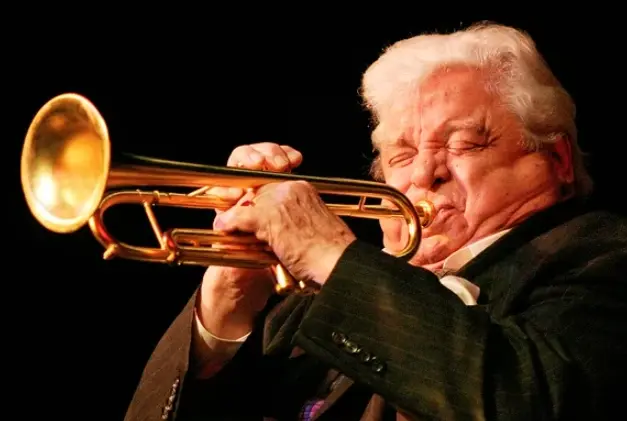How Do Trumpet Players Play So High?
- Music Trendz

- Sep 29, 2024
- 3 min read
Updated: Nov 27, 2024

Hitting high notes on the trumpet is a skill that sets top trumpet players apart, but it’s not something that comes easily to everyone. Achieving those soaring notes requires a combination of technique, muscle control, and breath support. Whether you're a beginner or an intermediate player frustrated with your range, understanding the mechanics behind high-note playing can help you unlock the upper register of the trumpet. Let’s dive into how trumpet players play so high, and what you can do to improve your ability to hit those notes with consistency and power.
How Do Trumpet Players Play So High?

The Science Behind Playing High on a Trumpet
At the core of trumpet playing is the vibration of the lips, known as "buzzing," which creates the sound that is amplified by the trumpet. The faster the lips vibrate, the higher the note. To play higher notes, trumpet players must control both their lip tension and the speed of the air flowing through the instrument.
The process begins with tightening the embouchure, the way the lips are positioned against the mouthpiece. By creating a smaller, tighter aperture (the opening between the lips), players can buzz at a faster rate, producing the high frequencies needed for higher notes. Simultaneously, increasing air pressure by pushing from the diaphragm is crucial to maintaining a strong, focused sound in the upper register.

Why Can’t I Play High on Trumpet?
If you’re struggling to play high notes, there could be several reasons why. One of the most common mistakes is relying too much on the lips and not enough on air support. Tightening your lips excessively can cause fatigue and restrict airflow, making it harder to hit and sustain high notes. Additionally, improper mouthpiece pressure—pushing the mouthpiece too hard against the lips—can lead to poor endurance and even lip pain. Building strong embouchure muscles and learning to use air more efficiently are key to overcoming these issues.

How to Develop High Note Range
Improving your range is all about strengthening your embouchure and increasing control over your airflow. One of the best ways to train for high notes is by practicing lip slurs. These exercises I designed to be tiring to play as each long passage changes pitch by altering the airspeed and the lip pressure and not by changing valve position.

Why Do My Lips Hurt After Playing Trumpet?
Lips often hurt after playing due to excessive mouthpiece pressure, which compresses the lips against the teeth. To avoid this, focus on maintaining proper embouchure, using the muscles around the lips (orbicularis oris) rather than relying on mouthpiece pressure. Additionally, ensure that you're warming up and cooling down properly before and after practice sessions to prevent muscle strain.
How to Hit Really High Notes on Trumpet
As you progress, hitting really high notes becomes more about refining technique and less about raw effort. Advanced trumpet players use a combination of tight embouchure, increased air velocity, and minimal mouthpiece pressure to achieve high notes with clarity and control.
How Can I Make My Trumpet Sound Higher?
To make your trumpet sound higher, focus on adjusting the angle of your airflow. Directing the air in a more upward trajectory, combined with tightening the embouchure, helps increase the speed of vibration without overexerting your lips. Using a shallow mouthpiece can also assist in reaching high notes, although players with larger lips may find deeper cups more comfortable for overall endurance and sound quality.
What’s the Hardest Thing About Playing Trumpet?
The hardest aspect of playing trumpet, especially in the higher register, is maintaining control over your embouchure and air support while managing lip fatigue. Hitting high notes is not just about muscle strength but also about mastering fine control over the embouchure, breath, and posture. It requires consistent practice and a deep understanding of the physical mechanics involved in sound production.
How Do You Buzz Higher on a Trumpet?
To buzz higher, you need to make subtle adjustments to your embouchure by tightening the aperture and using faster air. Start with simple buzzing exercises on your mouthpiece and gradually work your way up to higher notes. Remember that a small, controlled aperture combined with strong air support will allow you to buzz higher without excessive tension.


Comments